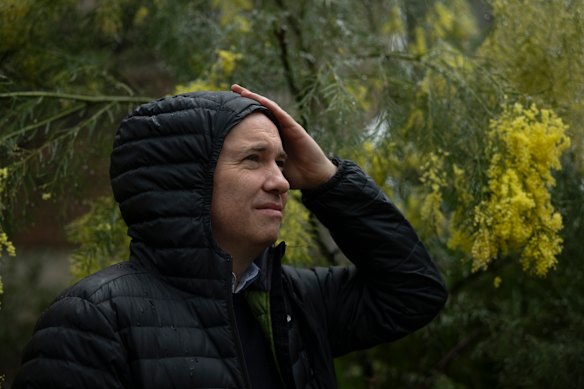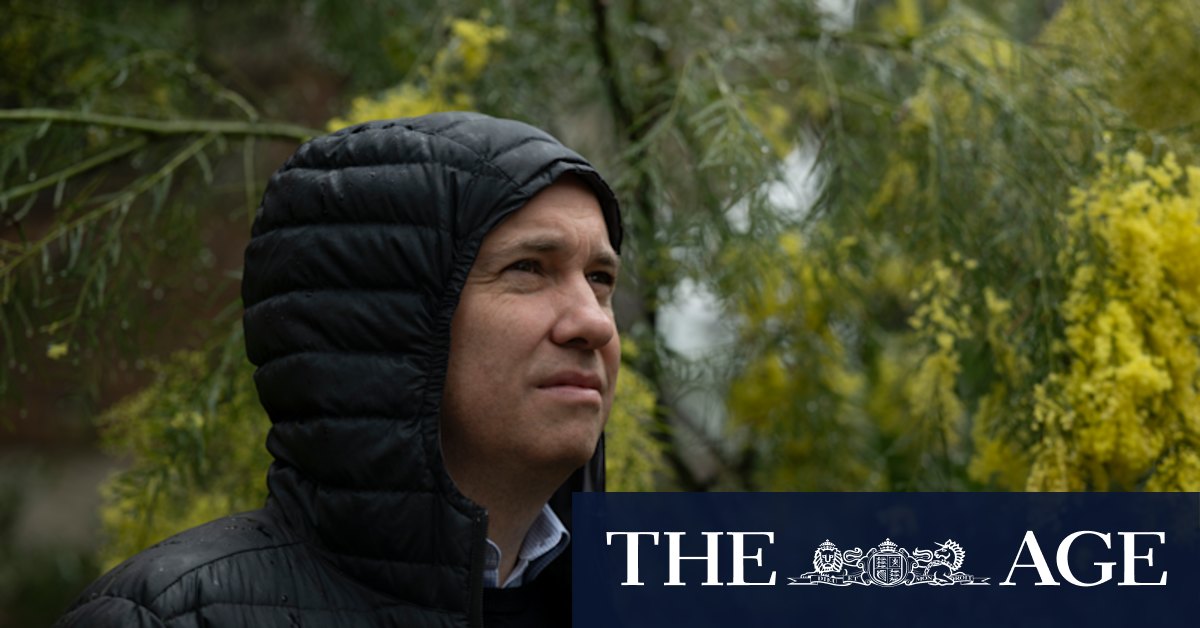Kean’s view is that the authority’s recommendation should be based on a conservative analysis of new technologies.
“If some of those technologies come off, great, but we have tried to anchor this in tangible, deliverable technologies and outcomes,” he says.
Kean had to consider the impact of the Trump administration dumping most of the Biden-era climate policies, but he also considered how the transformation of China’s manufacturing of green technology was dramatically changing the economics for the better.
The government will not be beholden to any recommendation that the authority finally makes, but given how much political capital it has spent developing its climate policy, it appears unlikely that Kean will be ignored.

Matt Kean says he is motivated by leaving the economy and environment better for future generations.Credit: Janie Barrett
Climate Change and Energy Minister Chris Bowen has been campaigning to secure the right to host the COP climate talks in November next year, an effort Prime Minister Anthony Albanese has endorsed. Embarrassingly for the government, it has so far failed to knock out a rival bid by Turkey.
Australia’s 2035 target must be credible to advance that bid. Before the authority’s recommendation comes up, the government is expected to publish its National Climate Risk Assessment – a report on the effects of climate change that Australians can expect to face this century under low- and high-emissions scenarios. It is expected to be grim reading.
Kean says he is not fazed by the competing demands placed on him, and says he has lost no political friendships by working on a project still contested by parts of the Liberal-National Coalition he once served.
“My friends are still my friends and my detractors are still my detractors,” he says.
“Clearly, Labor haven’t chosen me because of my political leanings. They’ve chosen me because of what I’ve delivered and in terms of what I tried to focus on when I was in government … tackling this problem in a way that tries to build consensus and bring communities together in the state’s interest or the national interest … This is not a red team/blue team challenge.”
Kean is referring to his time as energy and environment minister in the former NSW Coalition government, which legislated a 50 per cent reduction in emissions by 2030, 70 per cent by 2035 and net zero by 2050.
To win the politics, Kean first enacted the policies that would get the state on track to net zero, then urged his colleagues in the Liberal-National Party room to bank the win. The sector-by-sector approach for the Climate Authority is quite different – more akin, Kean says, to his subsequent role as NSW treasurer.
Loading
Either way, his work is drawing him deeper into the political and economic fray. He notes that the Productivity Commission has recommended that the authority expand its remit, a position he welcomes.
“My vision for the Climate Change Authority is for us to be the RBA equivalent when it comes to climate policy: independent, frank and fearless advice provided to the government and the public that people can have confidence in,” Kean says.
“That’s what I want to build the institution to. I want [it] to be a fixture in the Australian political and policy landscape that is trusted and respected.”
Outside observers are broadly complimentary about the Climate Change Authority’s work. An analyst with a business group says the authority could have submitted a politically safe set of numbers months ago and the delay suggests the work is rigorous.
Climate Council chief executive Amanda McKenzie says that under Kean, the authority has engaged deeply across the sector.
Loading
Leading economist Ross Garnaut says he has great confidence in the authority to come up with an appropriate target.
“They are doing the detailed work that I haven’t, and I am very confident that they will make recommendations that are in our national interest,” Garnaut says.
Kean has also been appointed to the board of Australian Wildlife Conservancy and plans to advocate on the biodiversity crisis.
“Since 1788, we have had 34 mammal species go extinct, or almost one in 10,” he says. “That’s a world-leading tally we should all be ashamed of.”
Reforms to the Environment Protection and Biodiversity Act are needed, Kean says, and should possibly include a climate trigger “given the climate change impacts are many and accelerating in their intensity and impact”.
Loading
Kean says decarbonising the economy is in the overriding national and environmental interest. It’s also in the interest of future generations, something Kean feels keenly as a young father to two stepchildren and two biological children. His newest child, Zoe, is just eight weeks old, and he worries that she will never see the Great Barrier Reef.
“What motivates me is the idea that we can hand our planet to our kids better than we found it, and we can hand them an economy stronger and more prosperous than we found it,” Kean says. “I would have thought that’s something that can unite all Australians.”
The Morning Edition newsletter is our guide to the day’s most important and interesting stories, analysis and insights. Sign up here.

